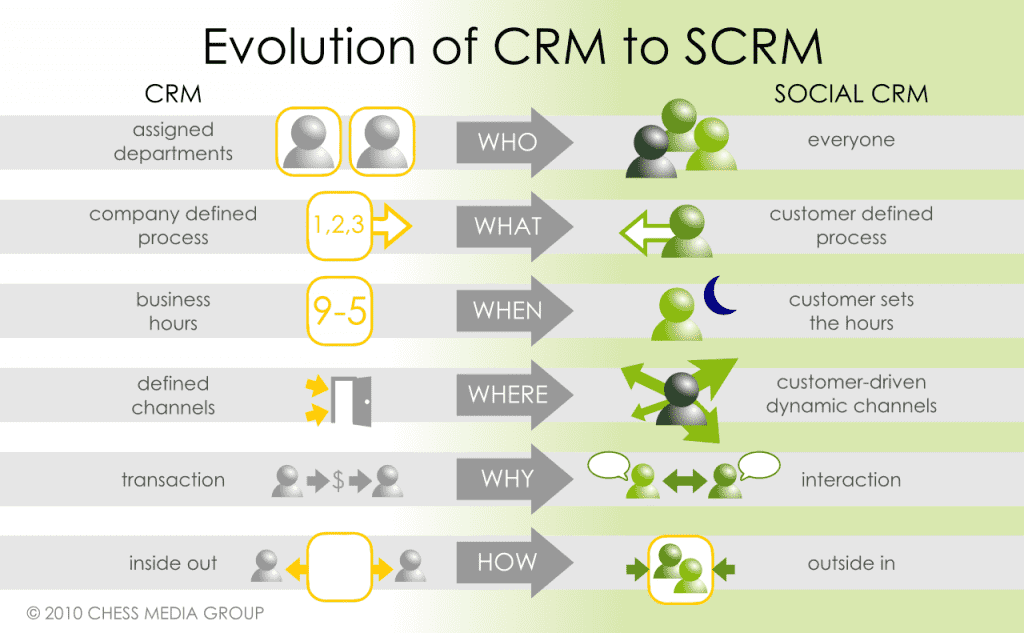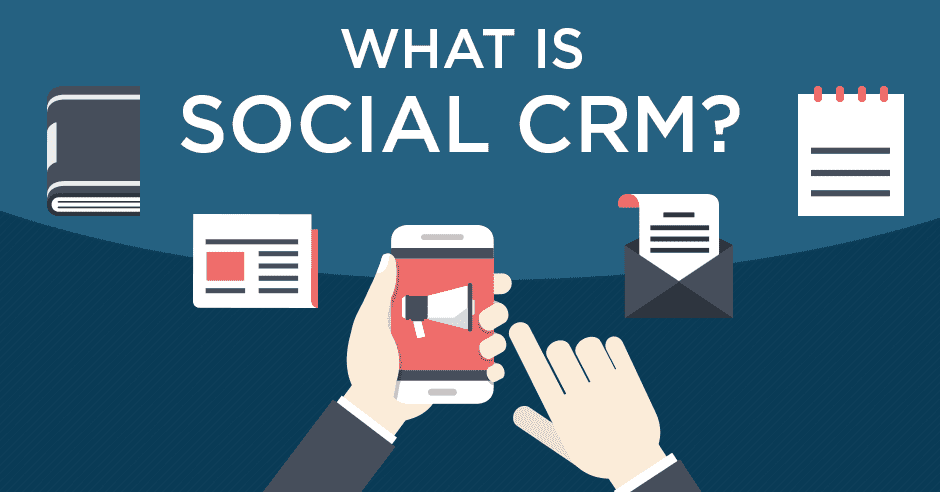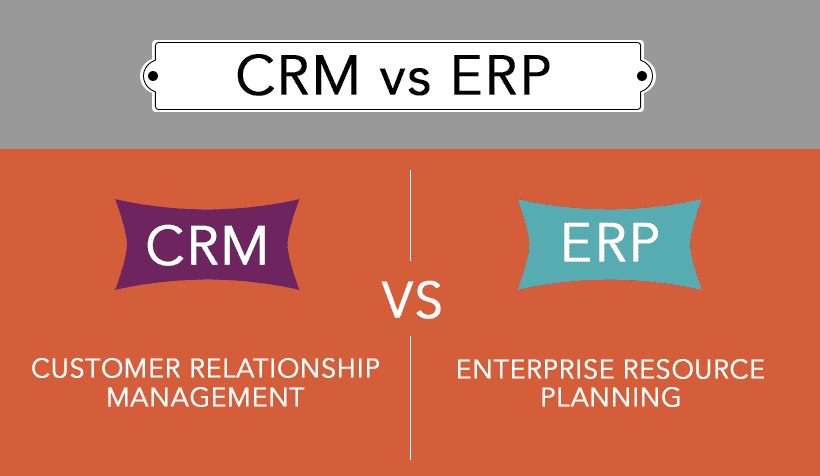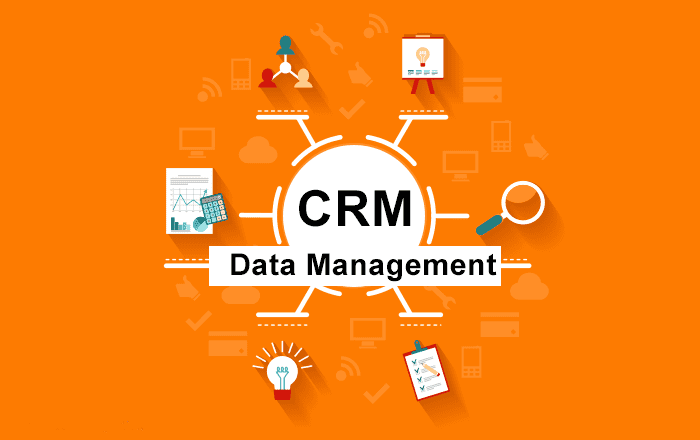What is Social CRM?
Social Customer Relationship Management, or social CRM, refers to the methods and deployment of customer relationship management tools over social networks. While the term "social CRM" may seem redundant -- after all, the relationships to be managed are inherently social -- the technology underlying social CRM software differs considerably from that which supports traditional CRM.
Traditional CRM involves the collection and management of static customer data -- such as names, organizations, demographic information, transaction history as well as various other online and offline identifiers. This data is sourced from email and phone interactions, company records, or data voluntarily submitted in surveys or in exchange for promotions or online content. The discrete data points employed by traditional CRM solutions occasionally change, but generally speaking, they are easier to ascertain and less prone to real-time fluctuation than information conveyed over social networks. This information is essential for modern applications deploying strategies based around textbook lead qualification and the conventional sales funnel.
Social CRM, on the other hand, interacts with huge volumes of unstructured data, which refers to data without a pre-defined data model. Unstructured data is primarily text-based but sometimes contains dates, numbers or other values whose meaning is clear to humans but difficult for conventional algorithms to understand. Much of the same information may be present, but the lack of labeling as well as linguistic subtleties -- such as colloquialism, sarcasm or contextual slang -- are better suited for human intuition than programmed cognition.
Social CRM is much more diffusive than traditional CRM -- which is transactional, operates through defined channels, segmented by department and automated through orderly processes. Social CRM is ‘omnichannel’ -- continuous, seamless engagement that picks up in one channel where it was left off in another. This aims to meet modern customer expectations that have evolved alongside advancements in technology, particularly communication and social media platforms.

For this reason, social CRM has been difficult for traditional CRM vendors to ‘get right’. Many solutions integrate social networks for a measure of social media oversight -- an inbox of social activity, like messages, tweets, trending hashtags -- but there are comparatively few solutions able to provide the level of tracking, measurement, reporting, analytical and predictive tools that are commonplace for traditional CRM data.
The goals of social CRM and traditional CRM generally overlap; it’s the features and technology that diverge. More conventional CRM solutions extend from contact management. Social CRM solutions incorporate modern CRM features with elements of social media management. Nevertheless, social CRM, like traditional CRM, remains clearly oriented within the departmental boundaries of sales, marketing and customer support.
How Does Social CRM Work?
Determining how social CRM works depends partially on how it’s defined. CRM solutions that provide basic social network account management within the app don’t require advanced algorithms so much as access to the social network’s API. This still produces useful CRM functions -- aggregating social data from one or multiple accounts into a unified inbox is one level of social CRM. Solutions that allow interaction with the social account from within the CRM go a step further. Meanwhile, social CRM solutions that trawl publicly available available social profiles to enrich contact information and compile an activity feed of contacts’ engagement with your brand are even more useful.
However, the social CRM features that will come to define the space go further than integrating social networks as an additional channel. They rely on advanced algorithms and statistical models to identify patterns within the unstructured social data. Much the way these advancements are revolutionizing traditional CRM, social CRM will come to be dependent on emergent technologies whose development will continue well into the future - and when it comes to social CRM, complement one another. These innovations include natural language processing, text mining, machine learning and sentiment analysis.
- Natural Language Processing (NLP) - Modern natural language processing is, in some ways, an application of computational linguistic methods to derive statistical patterns and meaning from a body of text. NLP, a form of corpus linguistics -- the study of language using samples of ‘real world’ text -- benefits from machine learning to process large quantities of unstructured data using probabilistic models to attribute weighted values to linguistic parts of speech, such as nouns, verbs, adjectives and so on. Statistical NLP, compared to older decision-tree (‘if, then’) methods of language analysis, is more equipped to account for randomness within the text body, including unfamiliar, misspelled or omitted words. Therefore, statistical NLP is better suited to analyze social media text, which originates from a myriad of sources with vast variation in styles, content and formatting. In recent years, natural language processing, applied by cutting-edge deep neural networks, has shown considerable progress in language modeling and parsing, which provide the basis for text mining and social media sentiment analysis.
- Text Mining - Also known as text data mining, or text analytics, text mining refers to the process of structuring text data, usually through parsing, in order to observe patterns within the structured data and submit it to a database. The quality of derived data refers to its relevance to the purpose for which the text was mined. Text mining allows for the categorization of text by type, tone and similarity, from concept to lexicon, as well as summarizing documents, extracting information and analyzing author sentiment. The latter, in particular, relates to social CRM: textual data organized by descriptive terms according to emotional polarity offers high-level views of mood changes associated with a given topic or term within a large population. This also applies to large quantities of text attributable to numerous sources -- especially pertinent to social media data.
- Machine Learning - Machine learning, sometimes colloquially known as ‘artificial intelligence’ (though the latter often refers to a vast range of computer science subdisciplines), seeks to recreate through algorithms the cognitive ability of humans to process information, identify patterns and make predictions on the state and properties of forthcoming data. Machine learning algorithms can be broadly characterized as ‘supervised’ or ‘unsupervised’: the former involves feeding training sets of data into algorithms to orient predictive inferences while the latter provides no baseline for predictive accuracy, and may be suited to discern hidden structures within unlabeled data. Machine learning enables programs to derive highly complex statistical models and algorithms from vast sets of data in support of reliable, repeatable decisions for predictable results. This has numerous CRM applications even outside social CRM, from digital sales assistants to marketing campaign suggestions to recommended responses in helpdesks.
- Sentiment Analysis - Sentiment analysis relies on subdisciplines of computational linguistics, including natural language processing and text mining, to identify and quantify subjective emotional tones in bodies of text. Sentiment analysis often relies on documents relating to the ‘voice of the customer’ -- such as reviews, survey responses and social media posts -- and scales sentiments according to the emotional ‘polarity’ of words, phrases and documents. Sentiment analysis is contextual and can qualify sentiment words in relation to modifying parts-of-speech or phrases and the overall concept of the text. Sentiment analysis can be automated for large collections of texts, such as blogs, online reviews, online news and social media. However, existing solutions for sentiment analysis still rely on the human analytical component. People don’t always agree on the interpretation of a given statement or document. By current standards, the most accurate algorithms would produce correct sentiment analyses equivalent to the rate of human consensus.
The technologies that underpin social CRM seek to enable computers to understand natural languages akin to humans’ own understanding, including subtle nuances of tone as influenced by word choice, metaphor, irony, perspective and wit. These technologies are not fully matured, and they are naturally influenced by the existing social media platforms whose data they seek to analyze, so broadly speaking, social CRM will continue its evolution as new technology and new platforms for social communication arise.
What Does Social CRM Do?
Modern communication incorporates idioms, shorthand and online mannerisms defined by particular social channels. Businesses can use these channels for additional data collection, advertisement, customer engagement and to establish a modern brand identity by deploying the right social CRM solution with talented social media professionals.
Social CRM enables companies to expand their sales, marketing and customer support capabilities into social media channels in several distinct ways.
- 360-Degree Customer View - Social CRM solutions connect silos of hitherto restricted customer information. Customers typically use a multitude of social networks -- Facebook, Twitter, LinkedIn, Google+, Pinterest -- and a social CRM solution will be able to bring together direct and indirect communication, whether through PMs, mentions, hashtags or others. Much the way traditional CRMs can unify contact activity into a timeline, a social CRM can combine contacts’ social media activity across multiple platforms and provide a fuller sense of the customer’s interaction with your brand.
- Social Engagement - Companies are equipped to engage customers the way customers engage each other -- in an intimate, casual, instantaneous voice. An active brand presence on social networks communicates accessibility. Participation in product conversations offers an opportunity to canvass customer sentiment regarding service quality, customer support issues or broader dialogues on social responsibility. The less canned, the better: modern customers prize authenticity, and a brand that conveys a social media personality stands out more than ones that don’t.
- Social Listening - A social CRM will present your social media activity on a dashboard, allowing you to track brand mentions along with keywords, hashtags, influencers and so forth. Users are able to customize real-time notifications when users direct message your accounts, when trending topics related to your brand reach a certain threshold or when your brand is associated with words of certain emotional polarity. Social listening can be automated across social networks, allowing for relatively minimal oversight while retaining the ability to directly react to social media activity that affects your brand presence.
- Social Media Analytics - The extraction of insight from the massive quantity of unstructured social media data can provide a real-time pulse of brand sentiment and adoption from the voluntary conversations held among customers and between them and company representatives. Social media analytics informs marketing campaigns, lead qualification and lead scoring models, sales approaches and customer support with social-specific KPIs, such numbers of followers, retweets, impressions, clicks or mentions.
- Social Customer Service - Customers often turn to social media for product complaints before contacting the company. Inbound customer queries give businesses an opportunity to foster meaningful engagement and build brand advocacy by resolving a case. However, even indirect mentions allow for proactive customer support to potentially reverse negatively trending brand mentions. Social CRM solutions can also include this engagement as an audit history of customer interactions that can yield further insight into costs per customer.
- Social Media Management Integration - Social CRMs often combine social media integration with CRM features, such as sales pipelines, contact management tools and an integrated calendar. Your company may already deploy a social media management tool -- this doesn’t necessarily preclude the use of a social CRM. Many social CRMs integrate with social media management software and can bridge the gap between a high-functioning traditional CRM platform and the cutting edge social media capabilities the management software provides.
Deploying a Social CRM Solution
As mentioned, social CRM solutions typically do not intend to supplant traditional CRM platforms. In fact, the most prevalent social CRMs on the market today integrate with a wide range of traditional CRM solutions. While these solutions are integrating social media features on their own -- a unified inbox of social PMs, 2-way communication, real-time notifications of brand mentions, social media analytics reports -- dedicated social CRMs exist for a higher focus on social media integration with CRM capability. It bridges social media management software and CRM, typically at a more cost-effective price than each.
Therefore, currently, social CRMs are most effective when used in conjunction with a traditional CRM that offers the robust sales automation features and marketing automation tools specific to your business needs. At present, the need for a social media presence that isn’t met by your current CRM isn’t reason enough to jettison the platform entirely -- an affordable social CRM can patch the capability gap without the interruption in operations that normally accompanies the switch to a new system.
Adoption of a social CRM platform will not itself guarantee improved social media engagement, though it will help. Businesses can get the most from their solution by observing three general principles:
1. Social CRM is complementary. As mentioned, social CRM solutions are not yet at the point where they can replace traditional CRM solutions. Fortunately, deployment of a social CRM is not an ‘either, or’ proposition. Find a solution that integrates into your existing system so you don’t upend your current operations.2. Build a social media strategy. There is a tremendous amount of social media activity and you can’t respond to everything. Building internal parameters to govern responses according to social network -- when and how -- requires a social media coordinator. This individual is ultimately responsible for turning the social CRM into more than an inbox - they promote a company voice commensurate with your desired brand identity.
3. Treat every customer as an individual. On social media, everyday people can interact on a 1:1 basis with artists, athletes, politicians, organizations and so on. People are accustomed to being engaged personally. Social media conversations don’t require the degree of personalization as email marketing campaigns, but small amount of extra time it takes to craft a human reply to a direct message is worth the positive brand impression it fosters in the recipient’s mind.
Going Forward with Social CRM
Social CRM provides the ability to quickly disseminate information and receive feedback from customers and prospects in real-time. It allows companies to obtain additional insights into their customers’ brand sentiments and buying habits while proactively offering customer service to negate potentially bad PR. In this manner, social CRM provides an effective platform for companies to add personality to their public image, attend common grievances and maintain, regain or rebuild customer confidence.
Current incarnations of social CRM provide a powerful complement to traditional CRM primarily by enriching the profiles of contacts and leads with a timeline of social activity and brand interactions. Going forward, the technologies underpinning social CRM can be expected to recommend specific responses to customers based on the nature of their complaint, their emotional level, their demographic characteristics and behavior history based on probabilistic models to achieve a desired response -- retention of a customer, resolution of a complaint, a successful cross -- or upsell. Meanwhile, the underlying technologies are already being deployed as supplemental to traditional CRM - found in machine-learning sales or marketing assistants on multiple platforms.
The current combination of social CRM and traditional CRM provide an effective platform for companies to engage a rapidly changing social media environment while retaining essential CRM functions for core business processes. The specific combination of social and traditional CRM functions, whether in separate solutions or from a single vendor, depend largely on a company’s use case -- their budget, size, needs and goals. Nevertheless, in an era where most consumers are on multiple social networks, and the networks have become institutional in mainstream culture, it is incumbent on businesses to obtain social CRM capabilities of some kind, lest they cede brand presence and market opportunity to companies that have them.
Browse traditional and social CRM solutions, as well as overviews, comparisons and user reviews, accessible from our CRM Comparison Guide.



